Science and diplomacy: two Swiss strengths help anticipate tomorrow’s world
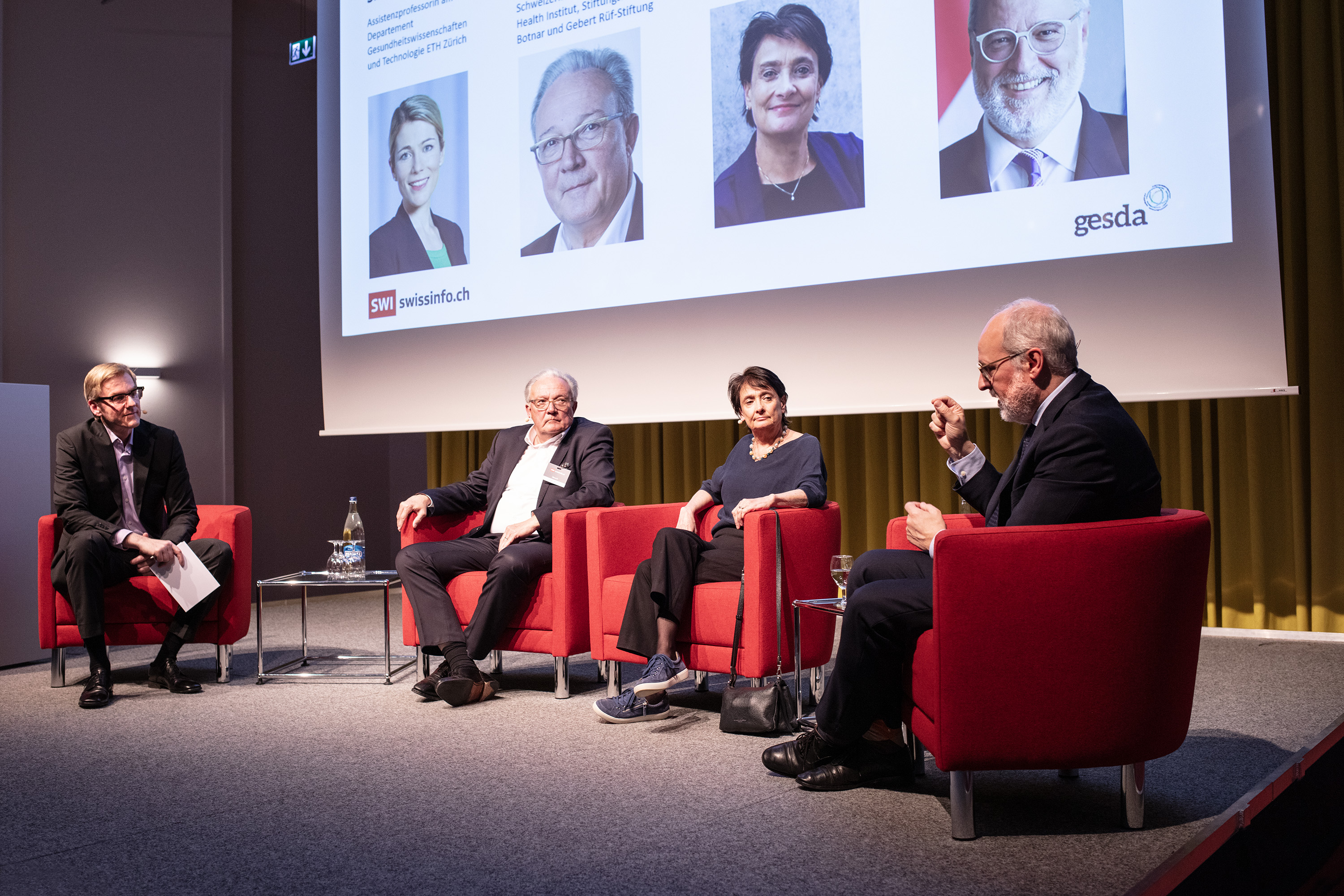
What can science contribute to solving global crises? This question was the focus of a panel discussion organised by SWI swissinfo.ch and the Geneva Science and Diplomacy Anticipator (GESDA) foundation.
Artificial intelligence, quantum computing and climate engineering: have you heard of them? Most likely yes, and perhaps you have already experienced for yourself the potential of tools such as ChatGPT or read articles about the possibility of modifying solar radiation.
However, there is one question that nobody can answer yet. How will these technologies affect our lives and our planet in the future? We don’t know. But that’s no reason to leave it to powerful states or large multinational corporations to define the impact of technological revolutions on society.
“We live in a world where technology is developing rapidly. We have the feeling that there are no rules and that governance is lagging behind technology. But it doesn’t have to be that way,” said Michael Hengartner, president of the ETH BoardExternal link, which oversees Switzerland’s two federal technology institutes.
Hengartner was speaking at an event held on Tuesday at the headquarters of SWI swissinfo.ch in Bern, which was attended by representatives from science, diplomacy, politics and the media. The discussion centred on the role of scientific anticipation in diplomacy and possible Swiss solutions to major global problems.
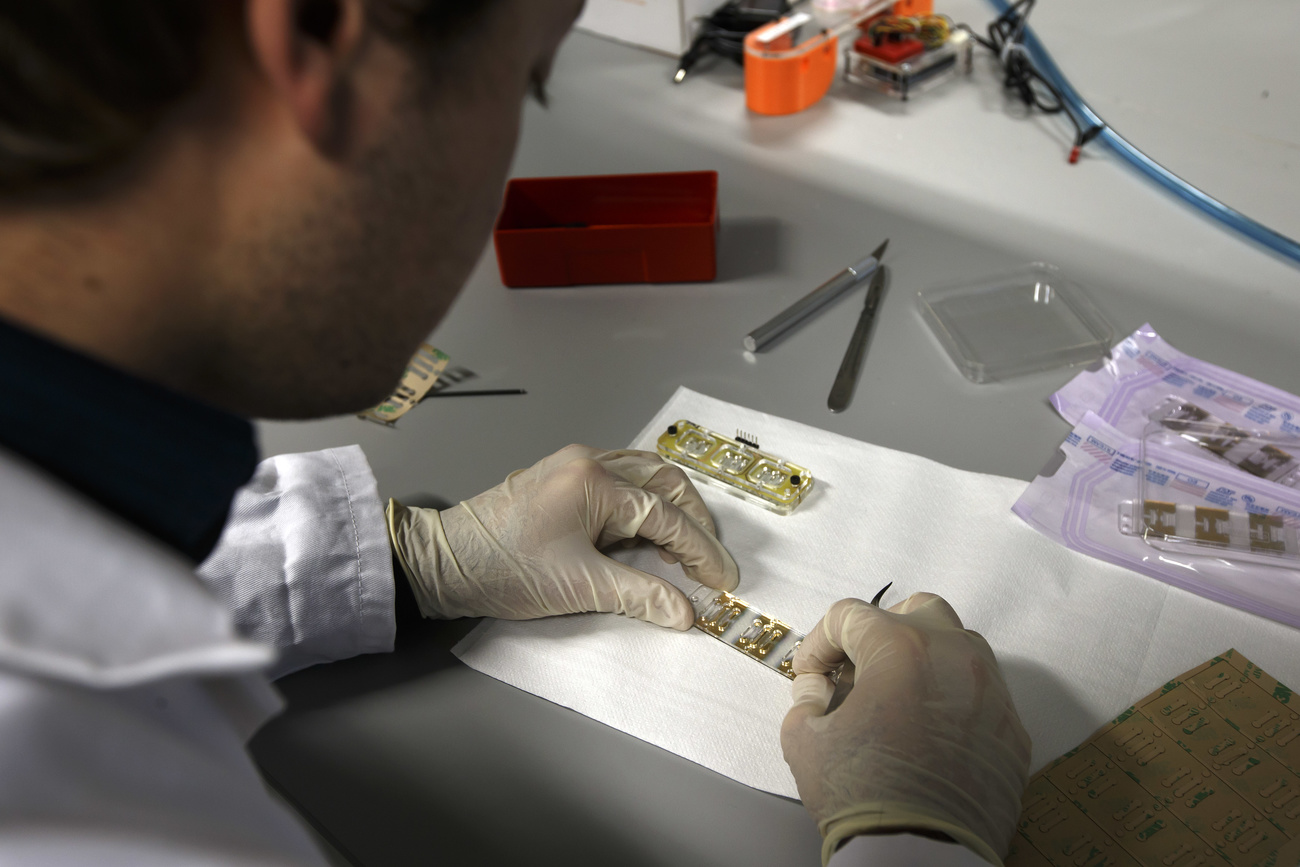
More
Anticipating future technologies for humanity’s well-being

Strong Swiss tradition of scientific diplomacy
One promoter of such solutions is the Geneva-based foundation GESDA (Geneva Science and Diplomacy Anticipator), which analyses scientific research and technological trends to develop recommendations for policymakers and diplomats.
GESDA was founded in 2019 as a joint initiative of the government and the city and canton of Geneva. It promotes dialogue between science and diplomacy in order to find solutions to issues such as the climate crisis, sustainability and health.
The climate issue is a typical area where “science becomes an instrument of diplomacy”, Alexandre Fasel, State Secretary of the foreign ministry, told SWI swissinfo.ch. He cited as an example the Intergovernmental Panel on Climate Change (IPCC), which develops measures for the international community in the area of climate. “We have invited science into the diplomatic process,” Fasel said.
“Switzerland has a strong tradition of scientific diplomacy,” emphasised Larissa M. Bieler, director of SWI swissinfo.ch, recalling that CERN, the European Organization for Nuclear Research in Geneva, helped bring Europe and the world closer again through science after the Second World War.
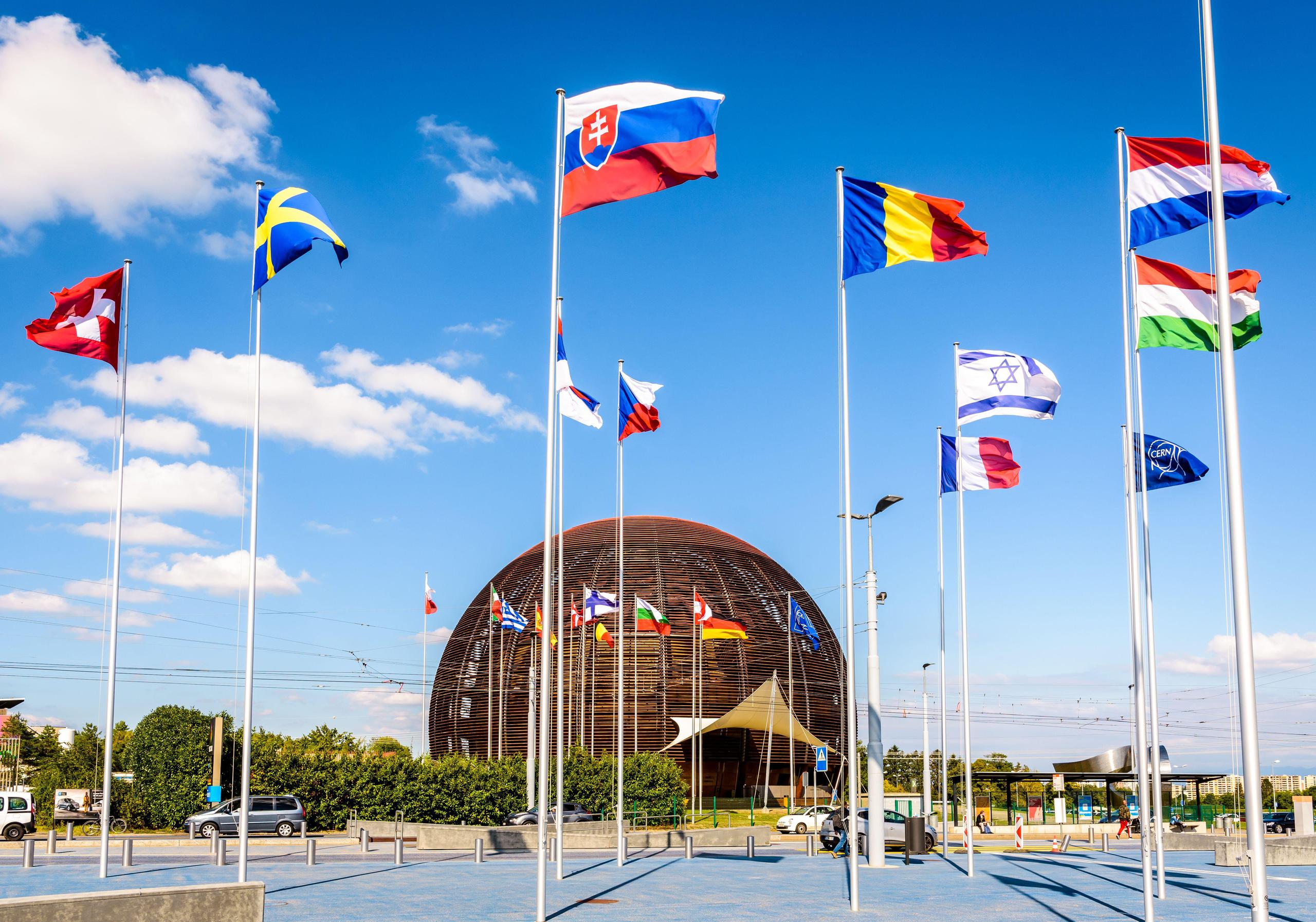
More
Diplomacy and science working hand in hand
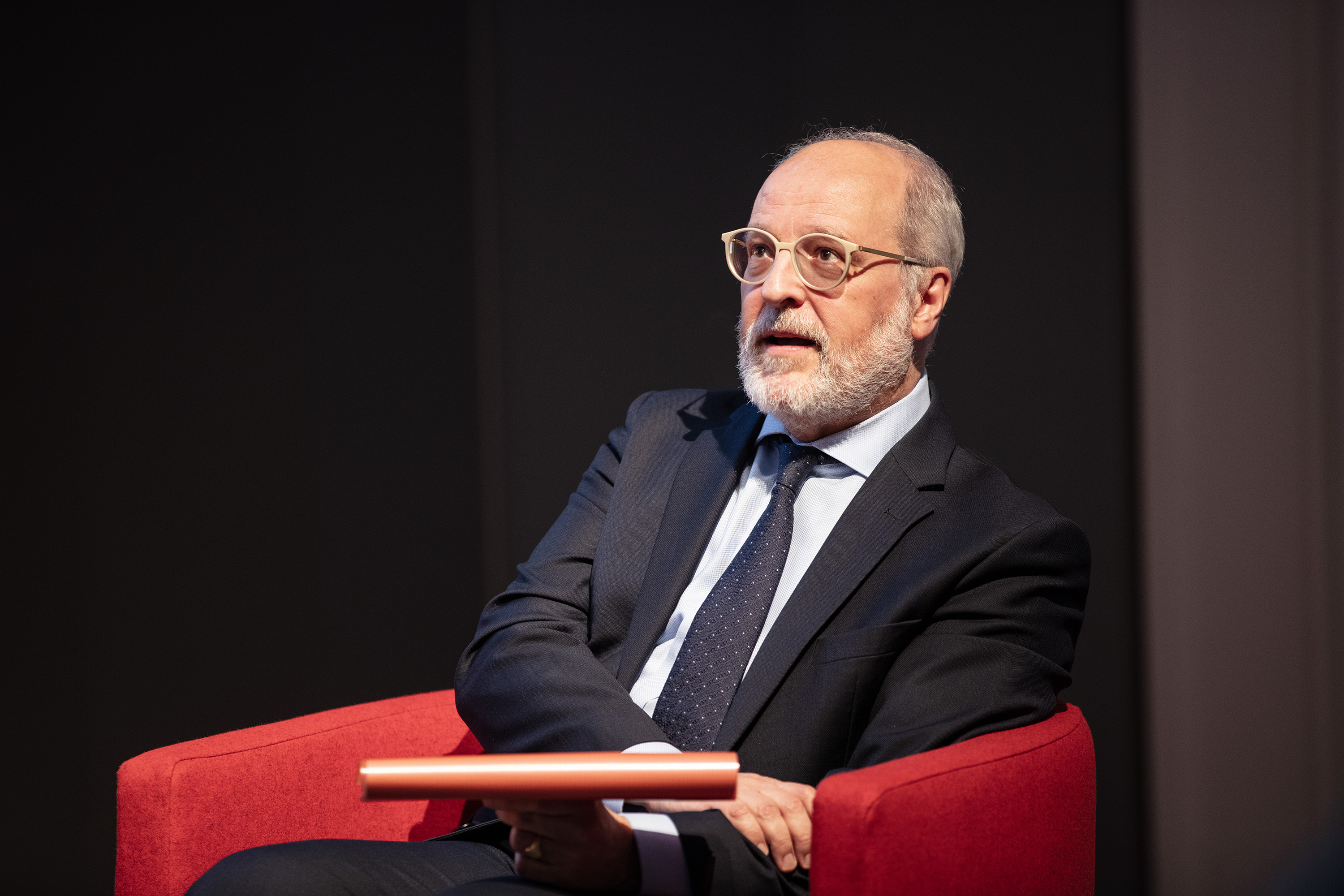
Maximising the positive effects
GESDA is not looking back. It’s looking to the future to assess how scientific developments will progress over the next five, ten or 25 years. The expectations are summarised in the “Science Breakthrough Radar”, which the foundation believes should become a tool for multilateral negotiations in International Geneva and beyond.
“But that’s not enough,” warned Michael Hengartner, chair of the GESDA Academic Committee. It is also crucial to know which technological developments are relevant for society and for which a multilateral discussion should begin now, he said. The aim is to maximise the positive effects and ensure that everyone has access to them, and to reduce the possible negative effects, he added.

More
The disruptive technologies heading our way
One specific project is the Open Quantum Institute. The Geneva-based institute has set itself the goal of putting quantum technologies at the service of the common good and thereby achieving the UN Sustainable Development Goals more quickly. According to Alexandre Fasel, the dramatic increase in the computing power of computers should not only benefit large companies, but also people in poorer countries.
Quantum computers are not the only area in which Switzerland can offer global solutions, noted Marcel Tanner, president emeritus of the Swiss Academies of Arts and Sciences. Switzerland has already laid the foundations for complex issues relating to climate, energy and neuroscience that can be built upon.
GESDA acts as a bridge between cutting-edge researchers and stakeholders in the public and private sectors, as was emphasised during the panel discussion. GESDA’s strength lies in bringing the main players together for joint reflection without falling into a negotiating logic in which everyone tries to assert their own position. “However, the solutions must come from diplomacy, companies and governments,” Fasel explained.
Prioritising the problems of today
The challenge is to think about the distant future now. Imogen Foulkes, a journalist for the BBC in Geneva and host of the SWI swissinfo.ch podcast “Inside Geneva”, reminded the audience that diplomacy is confronted with current, immediate problems. “They think in short time frames, and that could be a problem for GESDA,” she said.
The Covid pandemic has shown how difficult it is to act with foresight, she added. The World Health Organization had urged countries to prepare, but no one responded immediately. “Today, diplomats are perhaps realising a little more that it’s necessary to think more long-term,” Foulkes said.
“GESDA is a child that’s only five years old,” Hengartner concluded. “But it has great ambitions to make a positive contribution to society.”
Edited and translated from Italian by Reto Gysi von Wartburg. Translated from German by DeepL/ts
Do you want to read our weekly top stories? Subscribe here.
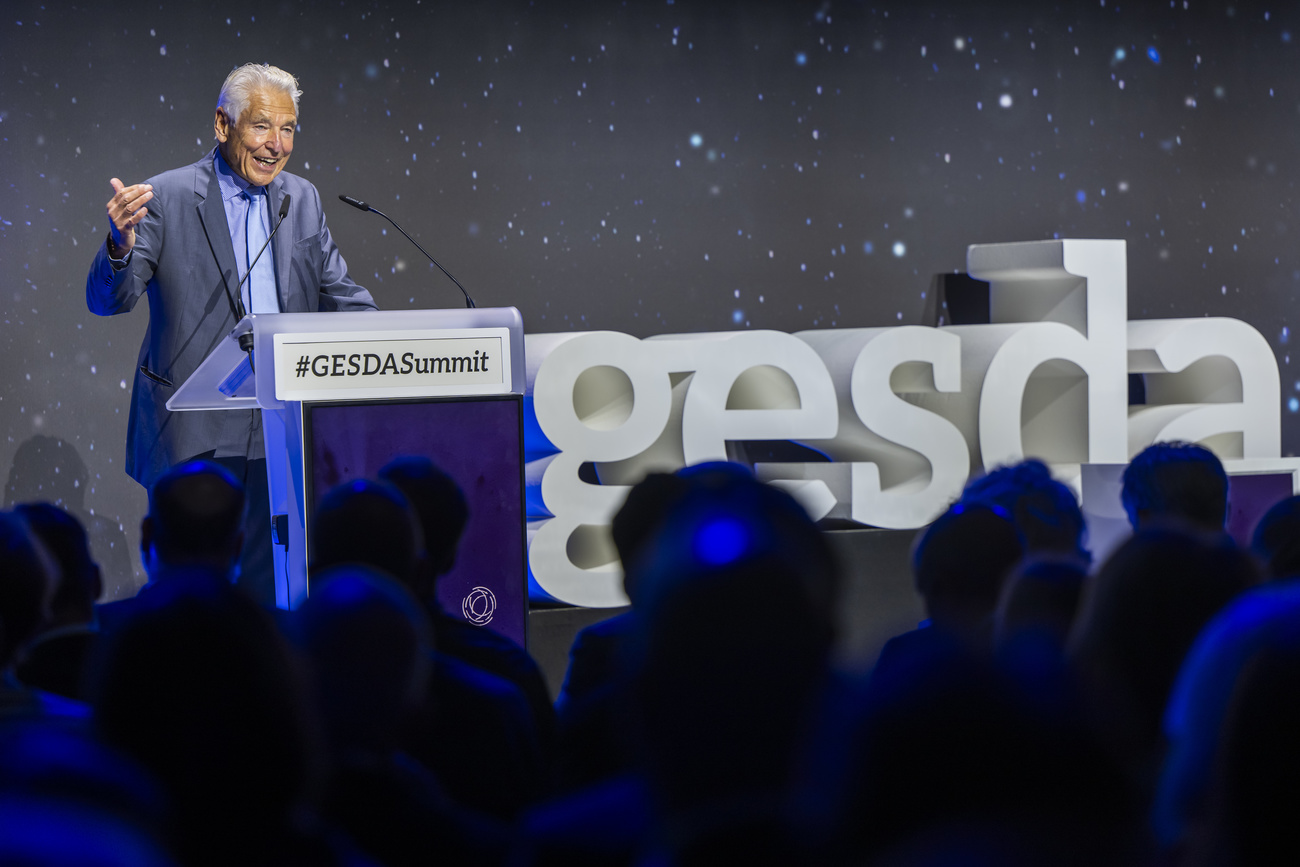
More
Technology governance: can GESDA put Geneva on the map?

In compliance with the JTI standards
More: SWI swissinfo.ch certified by the Journalism Trust Initiative









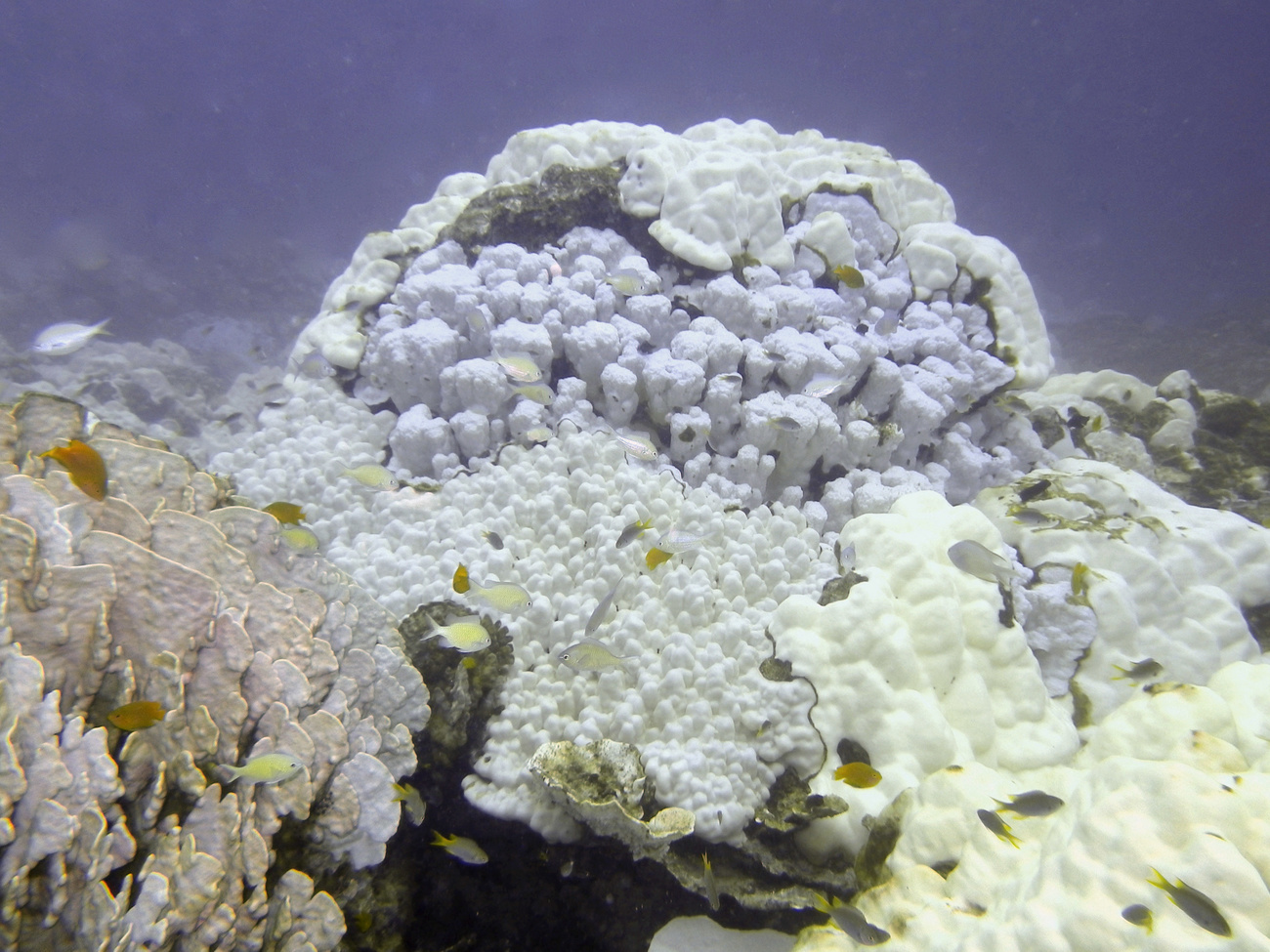


You can find an overview of ongoing debates with our journalists here . Please join us!
If you want to start a conversation about a topic raised in this article or want to report factual errors, email us at english@swissinfo.ch.